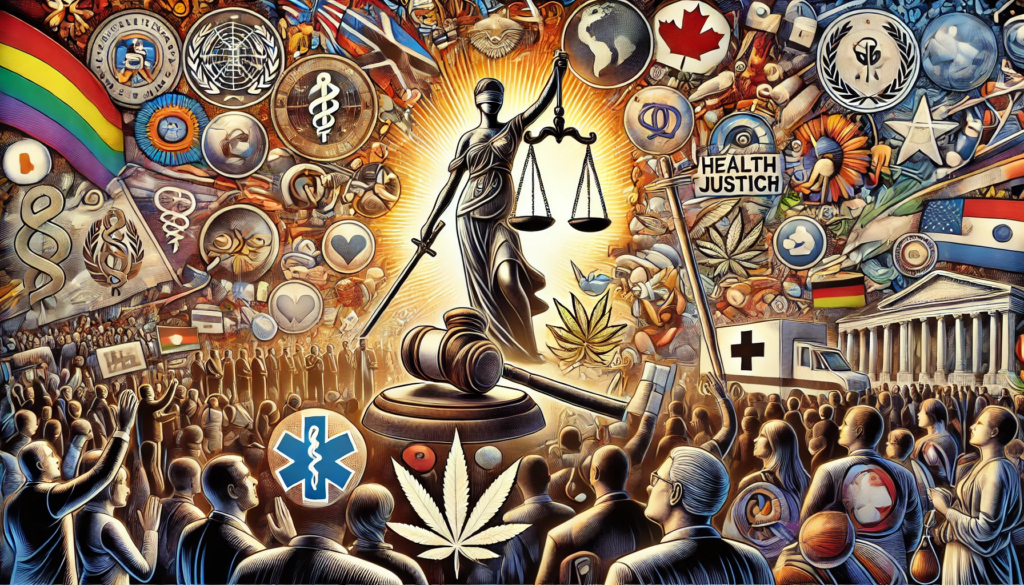Drug legalization presents a potential multifaceted solution to an entrenched global problem, promising benefits that span from economic upliftment to the protection of human rights.
In a groundbreaking move, United Nations human rights experts have called for the global legalization of drugs, arguing that such a shift would significantly reduce the profits from illegal trafficking and associated violence. This recommendation marks a pivotal moment in the ongoing debate over drug policy, emphasizing a human rights-based approach over punitive measures. The term “drug legalization” is central to this discourse and will be our focal keyword.
The Call for Change
Tlaleng Mofokeng, the UN Special Rapporteur on the right to health, has been a vocal advocate for harm reduction policies. In her recent report to the Human Rights Council, Mofokeng highlighted the failures of the current “war on drugs” and urged member states to adopt more humane and effective strategies. She emphasized that punitive approaches have not only failed to curb drug use but have also exacerbated public health crises and human rights violations.
Mofokeng’s report underlined that criminalization often leads to overcrowded prisons and overburdened justice systems, with marginalized groups bearing the brunt of these harsh policies. The call for drug legalization, therefore, is not just about public health but also about dismantling systemic injustices that have persisted for decades.
The Human Rights Perspective
The UN experts argue that the criminalization of drug use disproportionately affects marginalized communities, including minorities, people of African descent, and indigenous peoples. These groups often face harsher penalties and systemic discrimination, leading to higher rates of incarceration and social exclusion. By shifting to a model that prioritizes health and human rights, the experts believe that countries can better address the root causes of drug-related issues and promote social justice.
This approach aligns with broader human rights principles, advocating for the dignity and respect of all individuals. It challenges the stigmatization of drug users and calls for their treatment as patients rather than criminals. This shift could also reduce the stigma associated with drug addiction, encouraging more people to seek help and access necessary health services.
Economic and Social Impacts
Legalizing drugs could also have significant economic benefits. The illegal drug trade is a multi-billion-dollar industry that fuels organized crime and corruption. By regulating and taxing drug sales, governments could redirect funds towards public health initiatives, education, and social services. This approach not only undermines the financial power of criminal organizations but also provides resources for communities most affected by drug-related violence and addiction.
The potential economic impact is substantial. Legal drug markets could generate significant tax revenues, create jobs, and stimulate economic growth. These funds could be used to enhance healthcare systems, support addiction recovery programs, and improve overall community wellbeing. By transitioning from an illicit to a regulated market, countries can transform a major social problem into an opportunity for economic development.
A Scientific Approach to Drug Policy
UN health officials advocate for a scientific and evidence-based approach to drug policy. This includes decriminalizing drug use, providing access to harm reduction services, and investing in research on the medical and therapeutic uses of various substances. Countries like Portugal and Canada have already seen positive outcomes from implementing such policies, including reductions in overdose deaths and HIV transmission rates.
This scientific approach involves treating drug addiction as a public health issue rather than a criminal one. Harm reduction strategies, such as needle exchange programs and supervised consumption sites, have proven effective in reducing the negative health impacts of drug use. Additionally, research into the medicinal properties of drugs like cannabis, psilocybin, and MDMA is opening new avenues for treating mental health conditions and chronic pain.
Global Momentum for Reform
The call from UN experts comes at a time when many countries are re-evaluating their drug policies. In the United States, several states have legalized cannabis for medical and recreational use, and there is growing support for the decriminalization of other substances. Similarly, countries in Latin America and Europe are exploring new models of regulation and harm reduction.
This global momentum reflects a broader shift in societal attitudes towards drugs and drug use. Public opinion is increasingly favoring policies that prioritize health and human rights over punitive measures. This shift is also evident in international forums, where more countries are advocating for evidence-based approaches to drug policy.

The recommendations from UN human rights experts represent a significant shift in the global conversation about drug policy. By focusing on health, human rights, and scientific evidence, these experts are advocating for a more compassionate and effective approach to addressing the complex issues surrounding drug use and trafficking. As more countries consider these recommendations, the potential for transformative change in global drug policy becomes increasingly tangible.
This pivotal moment calls for a reimagining of how societies handle drug-related issues. By embracing drug legalization and regulation, we can reduce the harm caused by illegal trafficking, support vulnerable communities, and pave the way for a healthier, more just world.
***
Trap Culture is the ultimate destination for cannabis enthusiasts who want to experience the best of Arizona’s cannabis culture. Whether you are looking for the hottest cannabis-friendly events, the latest news about everything from drug legalization to trends in the industry, or the most exclusive and limited-edition products from the top brands in the market, Trap Culture has you covered. Visit our website to learn more about our events, our blog, and our store. Follow us on social media to stay updated on the latest news and promotions. Join the Trap Culture family and experience the most immersive and engaging cannabis-friendly social events in Arizona.


